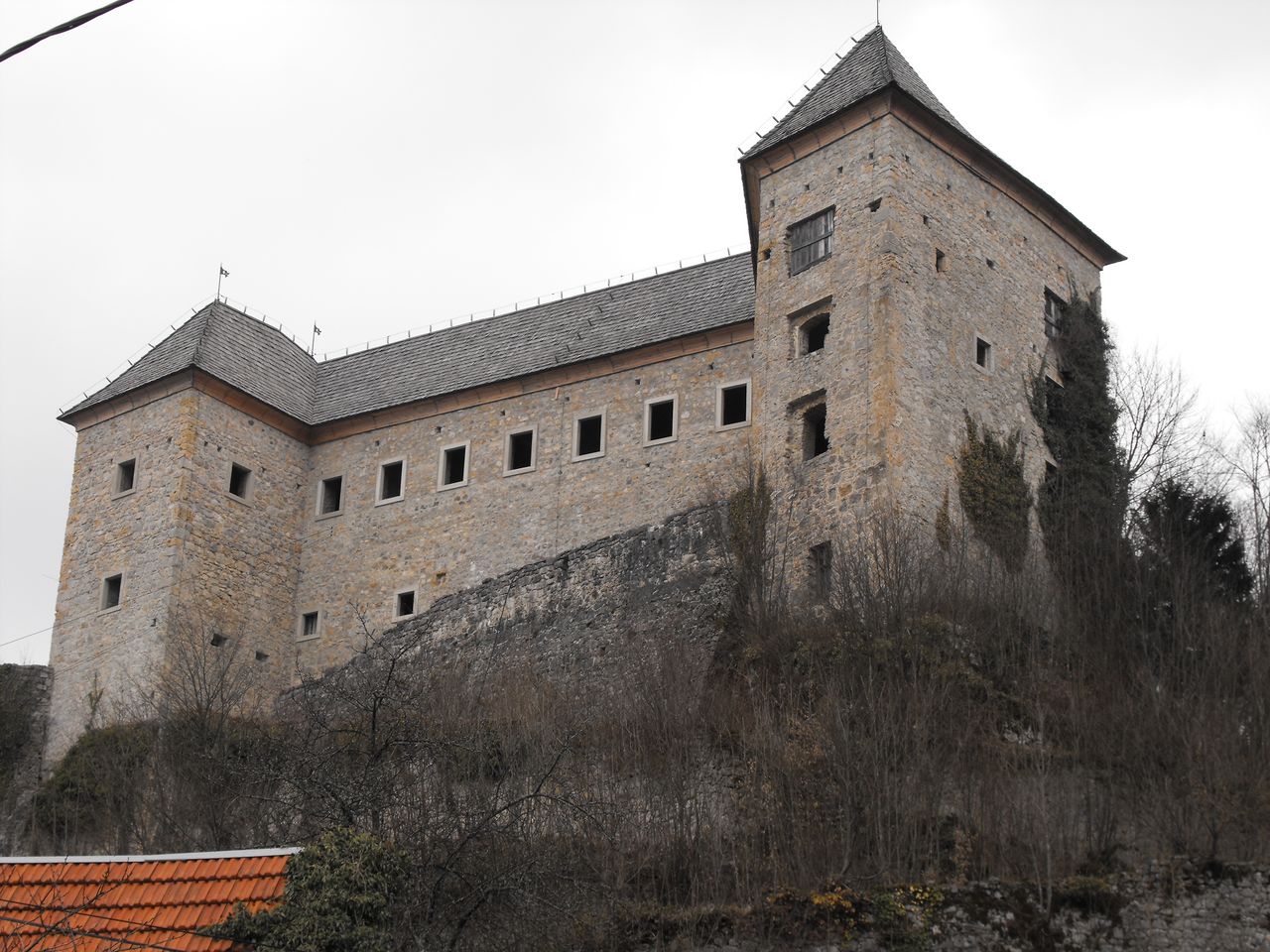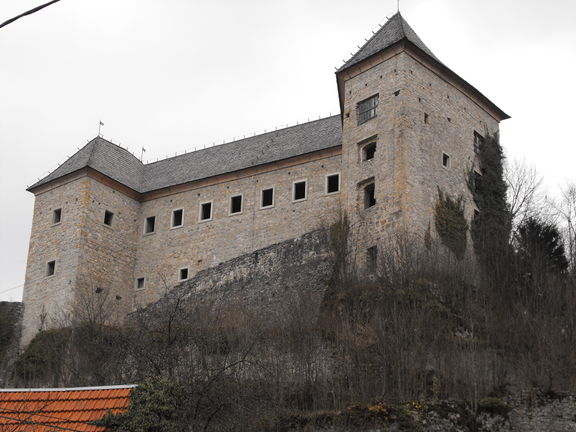Kostel Castle
History
The Kostel castle probably existed already in the 12th century, but it was first mentioned in written record in 1336 as “castrum Grafenwarth”, which means fortress, a refuge. Its first owners were the Counts of Ortenburg, vassals of the Patriarchate of Aquileia. In 1418, the Counts of Celje inherited the castle and expanded it into a formidable fortress, one of the largest in Carniola region. At that time the castle served as a border fortress in defence of the house’s landholdings in Carniola, and later in the defence against the Ottoman invasions. After the death of prince Ulrich II of Celje in 1456 and the extinction of the house, the castle was taken over, according to the hereditary contract, by the Habsburgs. Since 1620 it has been in the possession of various owners.
The castle had an important strategic position, as the local area presents the most transitive route across the Kolpa River. During the 15th and 16th centuries, the castle was a border fortification against Ottoman invasions, as it stood along one of the Ottomans' most frequent incursion routes into Slovenian territory. The Ottomans attacked the castle several times, but they managed to conquer it only in 1578, with deception – dressed up as Croatian peasants and pretending to be refugees who need refuge. After this incursion, the castle and village were burnt, and only seven farms remained left of three hundred. The fortress was then demolished once again in 1809 when Napoleon's troops destroyed it, along with the settlement. The castle was not restored after this, only the so-called Lower castle, leaning against the walls of the old castle, but it was burnt down too, by Partisans in 1943 so that the units of enemy home guard could not be settled there.
In the 1990s, the state of Slovenia started to renovate the castle, and in 2014 it was handed over to the Municipality of Kostel, to its Institute for Culture and Tourism, which brought the reconstruction to its present look.
Programme
After the opening in 2018, the castle in its renovated part hosted an exhibition on peasant uprisings, and various events, chamber concerts, exhibitions, performances and workshops are also taking place.
See also
- Kostel Castle in Wikipedia
- Kostel castle
- [Article on the Kostel opening on 22 June 2018]
- Article on Kostel, 25.6.2017




